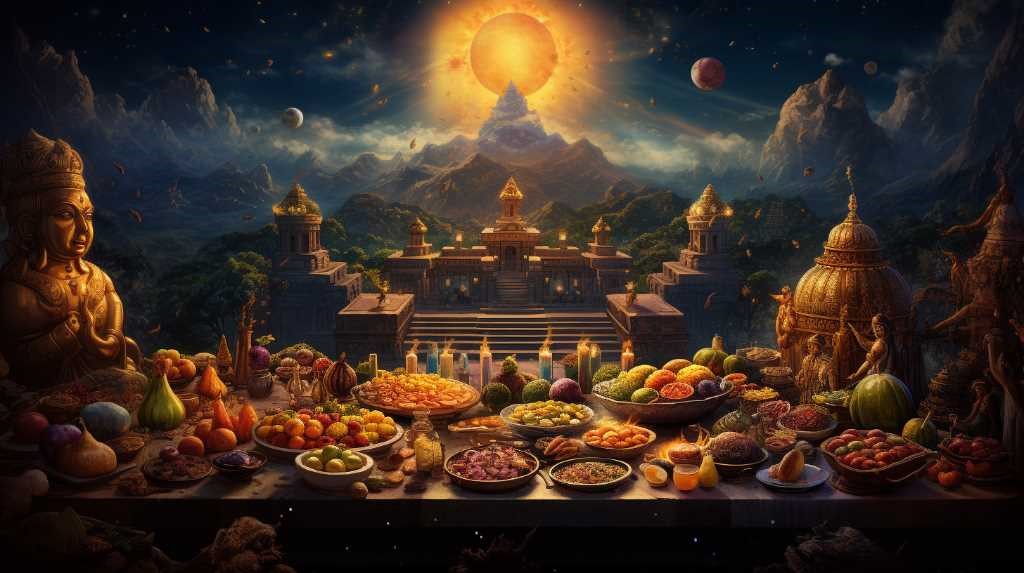The Question of Non-Vegetarianism in Spirituality
A common question in spiritual circles is whether those who consume non-vegetarian food can still attain spiritual liberation or Mukti. If spiritual freedom is attainable regardless of diet, then why is non-vegetarianism discouraged on the spiritual path? This question often sparks debates among practitioners and spiritual seekers.
The Traditional View: Attaining Samadhi
The state of samadhi is often regarded as the pinnacle of spiritual practice. It is the state of union with the divine, where the ego dissolves, and one experiences profound oneness with the universe. Many traditions across different cultures have acknowledged samadhi as a significant milestone in spiritual evolution.
However, is samadhi the ultimate state? The teachings of saints like Thirumoolar and Vallalar suggest otherwise. They speak of states that transcend samadhi, leading to even higher levels of consciousness and divine experience.
Beyond Samadhi: The Higher States of Consciousness
Thirumoolar and Vallalar, revered saints in the Tamil spiritual tradition, have emphasized that samadhi is not the final destination. There are higher states of consciousness, realms that surpass samadhi’s bliss. Vallalar, in particular, pointed towards a state called Arutperumjyothi, a supreme and infinite grace light that represents the highest state of divine consciousness.
Achieving this state is not merely about reaching a point of deep meditation; it requires a life dedicated to compassion, selflessness, and adherence to certain ethical principles. One of these principles is jeevakarunyaolukkam, or the practice of compassion towards all living beings.
The Role of Compassion: Why Avoid Non-Vegetarianism?
At the heart of jeevakarunyaolukkam is the idea of extending compassion to every form of life. Consuming non-vegetarian food involves the taking of life, which contradicts this principle of universal compassion. The act of killing, or indirectly supporting the killing of animals, creates negative karma, which can impede spiritual progress and prevent one from reaching the highest states of consciousness.
In the pursuit of higher spiritual states like Arutperumjyothi, it is crucial to purify the mind and body. A vegetarian diet, rooted in compassion and non-violence, helps in this purification process. It aligns with the cosmic principles of love and harmony, fostering an environment conducive to deeper spiritual practices.
The Path to Arutperumjyothi: A Compassionate Lifestyle
If the ultimate goal of spiritual practice is to reach the highest states of divine consciousness, adopting a lifestyle supporting this aim is essential. Living a compassionate life, avoiding non-vegetarian food, and practicing jeevakarunyaolukkam are integral to this journey. These practices help to elevate the soul, purifying it from the gross energies associated with violence and harm.
While samadhi is a significant achievement, it is only one step on the spiritual ladder. To reach the highest state of Arutperumjyothi, one must go beyond samadhi and embrace a life of total compassion, where every action is in harmony with the divine law of love.
Conclusion: The Choice of a Higher Path
The question of whether non-vegetarians can attain Mukti may not have a straightforward answer, but what is clear is that for those seeking the highest spiritual states, including Arutperumjyothi, a compassionate lifestyle is essential. The teachings of Thirumoolar and Vallalar remind us that spirituality is not just about meditation or achieving altered states of consciousness; it is about embodying divine principles in every aspect of our lives.
Choosing a compassionate path, which includes avoiding non-vegetarian food, is not merely a dietary preference but a spiritual necessity for those aiming to reach the ultimate state of divine grace.

